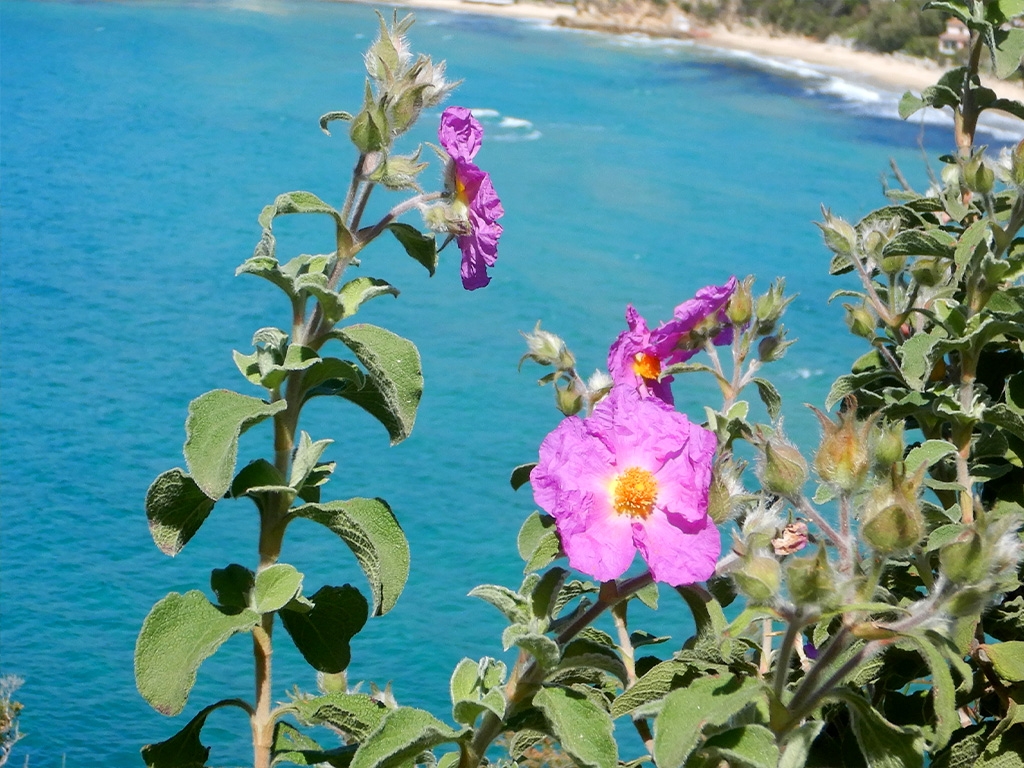
Marine rockrose and the ethnobotanical tradition. Other rockroses found on Elba
Regarding the ethnobotanical tradition, literature (see the Percorso Etnobotanico di Capraia data sheets on www.islepark.it) describes traditional applications of marine rockrose, used in medicine since ancient times as an anti-inflammatory and to aid healing. The leaves were made into an alcoholic maceration called cytosine, applied to burns, sores, dermatitis, insect bites and weever fish stings. Also in folk medicine, the flowers and branches were used to treat asthma and the leaves made into a tea.
Another traditional application was use of the twigs with fresh leaves for de-greasing and washing dishes. Bundles of marine rockrose, known on Elba and in the Archipelago as mucchio (mucchio pecito in the specific case of marine rockrose), were gathered in the old rural world to light and heat wood ovens for producing schiacce flatbreads and other fragrant breads.
Another rockrose species found on Elba, also with white flowers, is Cistus salviifolius, or sage-leaved rockrose, a bushy shrub reaching a maximum of about a metre tall, with elliptical, stalked leaves reminiscent of sage leaves, hence the name of this species. The leaves of sage-leaved rockrose, unlike those of marine rockrose, are rich in essential oils. In spring, sage-leaved rockrose is covered in beautiful white flowers even larger than those of marine rockrose, reaching a diameter of up to 5 cm. Even more eye-catching are the blossoms of hoary rockrose (Cistus incanus), or pink rockrose, another species that adorns the island's slopes. This broad, upright shrub, similar in height to the species already mentioned, has ovate or elliptical leaves entirely covered with white down. Its flowers are pink and very beautiful, with large, delicate petals that look crinkled when fully open.
It is more versatile with regard to the substrate than other species, thriving even on calcareous soils. In the past, the people of Elba called pink rockrose mucchio maseto or mucchio caprino and, as with marine rockrose, its leaves were used for washing dishes, probably due to the dense down that distinguishes this species.
(Antonello Marchese, translation from Italian)
